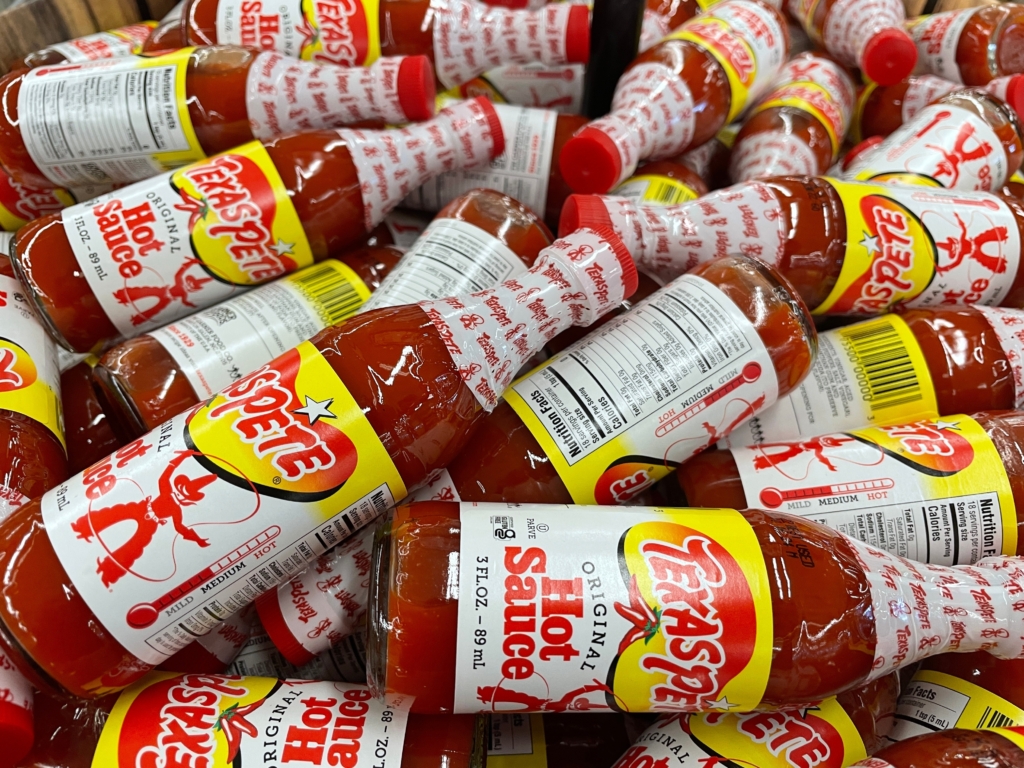Texas Pete’s hot sauce is made and manufactured in North Carolina by Garner Foods. The label on Texas Pete’s hot sauce states on the back of the bottle that it is made and manufactured in North Carolina, but is that enough? Or does the name and imagery on the package constitute false advertising? Here is our hot take on how consumer surveys could be used in this class-action litigation.
Case Facts
Philip White, a California resident, purchased a bottle of Texas Pete’s hot sauce in September of 2021. Upon closer inspection, he saw that Texas Pete’s hot sauce has nothing to do with Texas and is manufactured in North Carolina. White filed a 49 page complaint alleging that Garner Foods is intentionally misleading consumers with the labeling of Texas Pete’s Hot Sauce.
The Texas Pete label has a cowboy with a lasso, a lone star, and the name itself, Texas Pete’s suggests that the sauce is made in Texas, according to the suit. Its model for damages seeks to compensate consumers who paid a price premium for a hot sauce that they believe is from Texas. The plaintiffs allege that Garner Foods unfairly benefited from its false implication that the hot sauce is a Texas product.
Garner Foods argued that the label clearly states that the product is from North Carolina, and additionally that the name Texas Pete, coined in 1929, was a reference to the state’s spicy cuisine and also a nickname of the founder’s son. So, who is getting burned?
False Advertising Consumer Surveys in Class Action Lawsuits
When a class-action suit is filed for false advertising on labeling and the plaintiffs allege that they should be compensated for having paid a “price premium,” legal teams sometimes turn to experts who conduct consumer surveys. In this case, we might see plaintiffs or defendants submit consumer survey evidence of whether a “reasonable consumer” would interpret the “lone star,” cowboy with a lasso, and “Texas Pete’s” name on the product packaging as indicating that the hot sauce is from Texas. Another useful question for a survey to measure would be whether consumers are buying the sauce because they think it is from Texas. Courts often rely on consumer surveys, particularly likelihood of confusion surveys and conjoint surveys, to measure consumer perception, deception, and materiality in false advertising cases.
The facts of the case suggest that consumer survey evidence could be useful. We will see whether the legal teams involved pursue this kind of evidence to make their case. If you are in a false advertising litigation and require consumer surveys as evidence or to establish damages, contact the experts at MMR Strategy Group.
